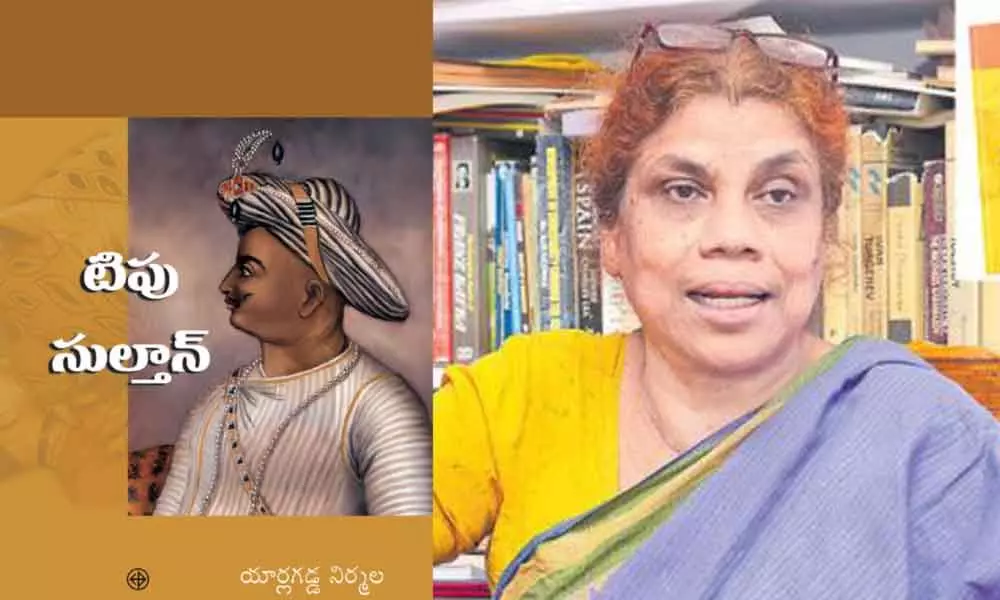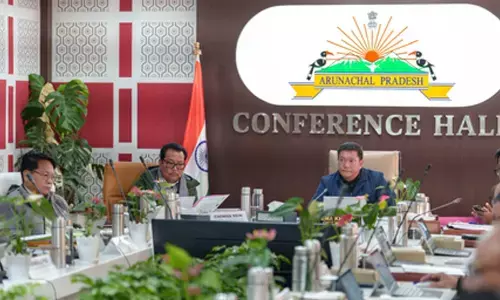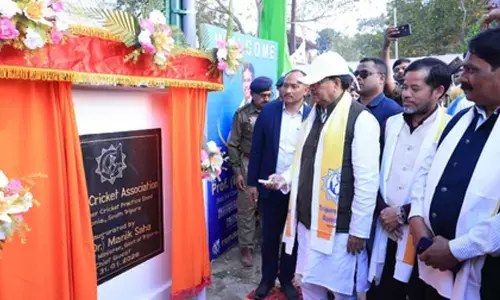Tipu Sultan's historical legacy written by Yarlagadda Nirmala

Tipu Sultan is back in news every November ever since the Congress party began celebrating Tipu’s birthday in Karnataka in 2015. Tipu Sultan was born on November 20, 1750 and died in a battle fighting the British East India Company on May 4, 1799.
Tipu Sultan is back in news every November ever since the Congress party began celebrating Tipu's birthday in Karnataka in 2015. Tipu Sultan was born on November 20, 1750 and died in a battle fighting the British East India Company on May 4, 1799. A flurry of activity begins from November 1 onwards in Karnataka, with claims and counterclaims about the virtues and vices of the powerful monarch, who took on the British East India Company.
Govind Pansare, who wrote the path-breaking book 'Who is Shivaji' in an attempt to set right the deliberate distortions to his historical legacy asks, "Should a king be revered in a democracy? What is there in a king's thinking, his practice and his life, for his memory to inspire us in a democratic age?" He then goes on to explain why the Shivaji that exists in the popular discourse as the Go-Brahman Pratipalak and an anti-Muslim defender of Hindu faith is not the real Shivaji whose life and times have been recorded and available in public domain. Many of his letters are available and so are the records from his rule.
If the right-wing political parties deified Shivaji to distort his historical legacy, by distorting history once again, they are demonising Tipu Sultan, the Mysore ruler, into a cruel and bigoted ruler who terrorised his people. Again, much about Tipu Sultan is a matter of public record in India, UK and France, as he belongs a more recent phase of history.
Hyderabad Book Trust has brought out a book titled 'Tipu Sultan', written by an associate professor of history Yarlagadda Nirmala, in Telugu. There are no detailed accounts of Tipu's life in Telugu so far, and this book tries to fill the gap, especially in the context of the rising crescendo of controversy around his legacy.
As a professional historian, in the 160 pages of the book, Nirmala describes in detail the geo-political history of Mysore, the ascendance of Hyder Ali and his successor Tipu to the throne of Mysore. She maps this around the four Anglo-Mysore wars that see the ascendance and death of Tipu.
The book is divided into 14 chapters, taking us from the historical context prevailing in South India in the 18th century to the concluding chapter on Tipu Sultan as a person. She quotes from historical texts of both British and Indian authors from the 19th century to the present.
In the 18th and 19th century British texts, Tipu is demonised as he was the single biggest obstacle for the subjugation of the Indian subcontinent by the East India Company. After taking over from his father Hyder Ali, Tipu prohibited East India Company from trading in the Mysore province and entering Mysore without permission. Realising that the strength of East India Company is its trade, Tipu took great care to industrialise and to expand commerce. Seeking expertise from other countries like France and the Ottoman Empire, Tipu encouraged indigenous production of arms and ammunition, silk, glassware, paper, clocks, sugar, strings for musical instruments. He also developed horticulture and sericulture.
Among all the Princely States of the time, Mysore expanded trade farthest, not just to the other Princely States in India but also to the Gulf States through Muscat, where he established a trading hub for Mysore's products.
This was contrary to the other Princely States that succumbed to the dominance of East India Company and often collaborated with it to attack the Mysore province under Tipu.
Tipu's diplomatic and political engagement with the French helped him streamline his administration. Tipu's father Hyder Ali already was well-known for raising a large professional army that was by far the most competent to take on the East India Company forces. Tipu himself had a formidable reputation both as a warrior and administrator. Much like Shivaji, Tipu's army and administration were diverse with people from all faiths and castes.
The author quotes Nana Fadnavis, an administrator of the Peshwas, who often collaborated with the East India Company in its wars, as saying, ''Now the English will grow stronger. Already they hold sway over Eastern India. Now they will target Poona. Bad days ahead," when he heard of Tipu's death in battle in 1799. Because by then some of the biggest princely states became subordinate to the Company, with some rulers happily superannuated with a pension from the Company.
Nirmala gives a detailed chronological account of the various wars and helps us understand the geopolitics of the times by describing the larger context in which the wars were fought. Hyder Ali and Tipu's time (1761-99) coincided with two significant global events. The American Revolution (1765-83) and the French Revolution (1789-90). In both the events, the British and French forces were adversaries. This had an inevitable reflection on how wars were fought, which sides of the Indian Princely States were backed, or peace was negotiated by the French and the British in India. This determined the fortunes of the princely states. Tipu's fall was the result too of French pre-occupation with wars following the revolution, and its inability to support him.
The book seeks to discuss the circumstances in which Tipu punished persistent adversaries with religious conversions, though he had deeply respectful relations with the Shringeri Peethadhipati. It is, in fact, the discovery of several of Tipu's letters to the Peethadhipathi in 1916 that throws new light on the Tipu's respect for Hindu religious places contrary to the much-maligned image of him as a Muslim tyrant. He restored the Srirangapatnam temple after it was sacked by the Marathas and donated generously to many temples.
He fought equally fiercely with both Hindu and Muslim princes in battles of expansion. He remained fiercely anti-British through his rule, which led to his demonisation in British history and contemporary media. The author quotes from several historians, who concurred that the fall of Tipu was the most important moment of colonial history that allowed the East India Company to expand undeterred.
The last chapter of the book also presents the humane side of Tipu as a person, his loyalties, and his love for his family.
Yarlagadda Nirmala's book on Tipu is an important addition on this phase of colonial history for the Telugu audience. The book, while it sketches Tipu's personal and political life in all its multiple dimensions, tends to be repetitive in parts. This has become inevitable because of the way the book is structured around the four Anglo-Mysore Wars. Nevertheless, for the Telugu reader interested in understanding Tipu as a historical figure, this is a remarkable, accessible contribution.














